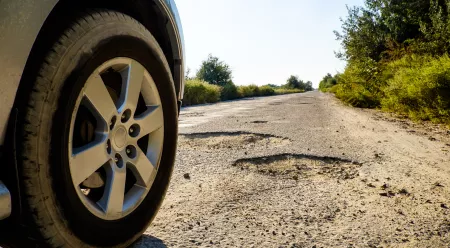What is a freehold strata? — An expert guide
Freehold stratas are growing in popularity in Canada, but many people are still unfamiliar with what they are and how they work.
But, before learning the answer to the question, "what is a freehold strata?", you should take a moment to learn about the difference between freehold properties and leasehold properties.
What is a freehold property?
"Freehold property" is a term that's used to identify a living space (and that land on which the property sits) that is owned by an entity (i.e. the property owner).
If you own a freehold property in Canada, you can do what you please with the living space and the land. However, as a freehold property owner, you are responsible for maintaining the exterior of your property (shovelling snow, cutting the grass, general upkeep, etc.).
The majority of detached homes in Canada are freehold properties, so, if you own a home in Canada, then you're a freehold property owner.
What is a leasehold property?
"Leasehold property" is a term that's used to identify a living space (detached home, condo, etc.) that's owned by one entity that sits on land that's owned by another entity.
If you enter a leasehold agreement, you are not responsible for maintaining the land on which the property sits. But you'll need to cover a number of land-related fees, including ground rent, service charges, and property maintenance expenses.
Leasehold property agreements can range from 40 to 999 years. That being said, the average leasehold property agreement lasts roughly 99 years. When the leasehold property agreement ends, the leaser (i.e. the owner of the living space) is able to renegotiate the terms of the agreement with the landlord (i.e. the owner of the land).
Now that you know the differences between freehold and leasehold properties, it's time to tackle the question of the day.
What does freehold strata mean in Canada?
Freehold properties are undeniably common in Canada, yet, many people are unfamiliar with freehold stratas.
Simply put, the freehold strata meaning is a living space (and the property on which it sits) that is owned by the same entity.
However, these types of living spaces are located in communities with shared amenities. To cover the cost of these amenities, freehold strata owners need to cover a variety of strata fees.
Additionally, due to the fact that freehold strata owners own the land that their properties are on, they are responsible for things like general maintenance and upkeep.
What are the pros and cons of buying a freehold strata?
There's no denying that these types of properties come with a number of advantages, some of which include the following:
- Lower strata fees
- More control over the property
- Access to fantastic amenities
- Greater appreciation in value (due to the fact that you own the land)
- Straightforward mortgage application process
However, freehold strata also come with their fair share of disadvantages as well. Some of these disadvantages include:
- Have to maintain the property by yourself or pay a service to maintain it for you
- Follow the rules set by the strata board
- The owners still need to pay the required fees
Be sure to keep these things in mind before investing in one of these types of properties.
Freehold strata vs strata unit — What's the difference?
You're probably wondering, "how does a freehold strata differ from traditional strata?".
As mentioned earlier, if you purchase freehold strata, you own the land on which the living space is located. This means that you're responsible for maintaining the exterior of the living space and the land. You can also pay a service to maintain the property for you.
But, if you purchase a traditional strata, you only own the living space, not the land itself. This means that you do not have to maintain the exterior of the property (this is the landowner's responsibility).
Not being responsible for maintenance may sound beneficial, but it can be a double-edged sword. Even though you get to save time and energy on general maintenance tasks, freehold strata owners tend to deal with higher fees.
Getting insurance for freehold strata in Canada
If you need a mortgage for your freehold strata, your lender will most likely ask you to invest in an insurance policy that meets their requirements. Finding insurance for your strata can seem like a challenge, especially if it's your first time shopping for insurance. Thankfully, with a little bit of time, effort, and some help from an online insurance brokerage, you can find the best condo insurance quotes for your strata!
For those who don't know, an online insurance brokerage is a third-party company that works with both policyholders and insurance companies. Policyholders can contact their insurance broker to get access to several quotes from the top insurance companies in Canada.
If you'd like to start comparing insurance quotes for your freehold strata, be sure to contact your Surex advisor today!
Save up to 25% when you bundle multiple insurance policies with Surex
Finding high-quality insurance quotes is much easier when you team up with your personal Surex insurance advisor. Our top-notch team of advisors works with some of the most respected insurance carriers in Canada.
Best of all, we can help you find the best insurance for your strata in just a few, short minutes. You can start comparing the best insurance quotes in Canada in ten minutes or less!
Contact us today to start comparing quotes and to learn about the advantages of bundling your insurance policies!



